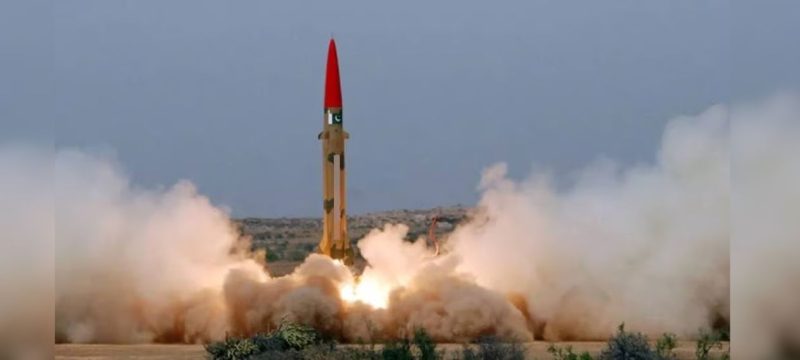Pakistan has successfully conducted a test launch of its short-range ballistic missile, Abdali, as part of its defense preparedness efforts. The test was carried out today amid rising tensions with neighboring India.
According to the Inter-Services Public Relations (ISPR), the missile was launched in the presence of top military leadership, including the Commander of the Army Strategic Forces Command. Senior officials were on-site to oversee the operation.
Read more: Army Commanders Warn India Against Provocations Amid Kashmir Tensions
The surface-to-surface missile, with a range of 450 kilometers, was tested during the military exercise “Ex INDUS.” The objective was to assess the operational capabilities of Pakistan’s strategic arsenal and verify the performance of the missile’s updated guidance and maneuvering systems. Officials emphasized that this launch reaffirms Pakistan’s commitment to sustaining a high level of military readiness and deterrence.
The President, Prime Minister, Chairman of the Joint Chiefs of Staff Committee, and the heads of Pakistan’s armed forces congratulated all military personnel, scientists, and engineers who contributed to the successful launch. They expressed complete trust in the skills and preparedness of the Strategic Forces and reiterated Pakistan’s unwavering resolve to maintain a credible minimum deterrent for national defense.
The Abdali missile system, capable of delivering both conventional and nuclear warheads, strengthens Pakistan’s strategic position. Its operational reach enhances the country’s ability to deter regional threats and respond effectively to any aggression.
This missile test occurs at a time when political and military tensions between Pakistan and India—both nuclear powers—remain high, particularly over security issues along their shared borders and broader regional instability.
Pakistan’s military leadership highlighted the significance of this launch in reinforcing its deterrence posture and urged the international community to recognize the delicate security environment in South Asia. They called for peaceful engagement and stability in the region to address ongoing challenges.









